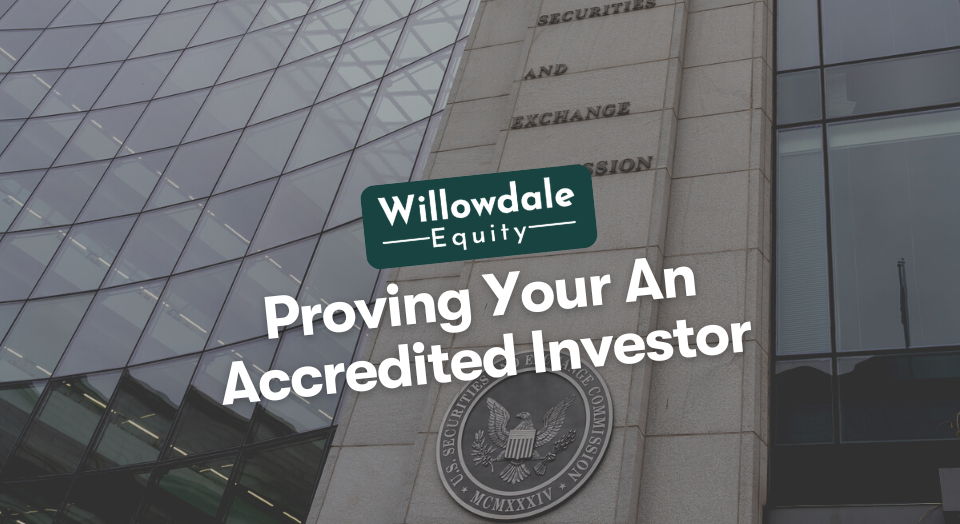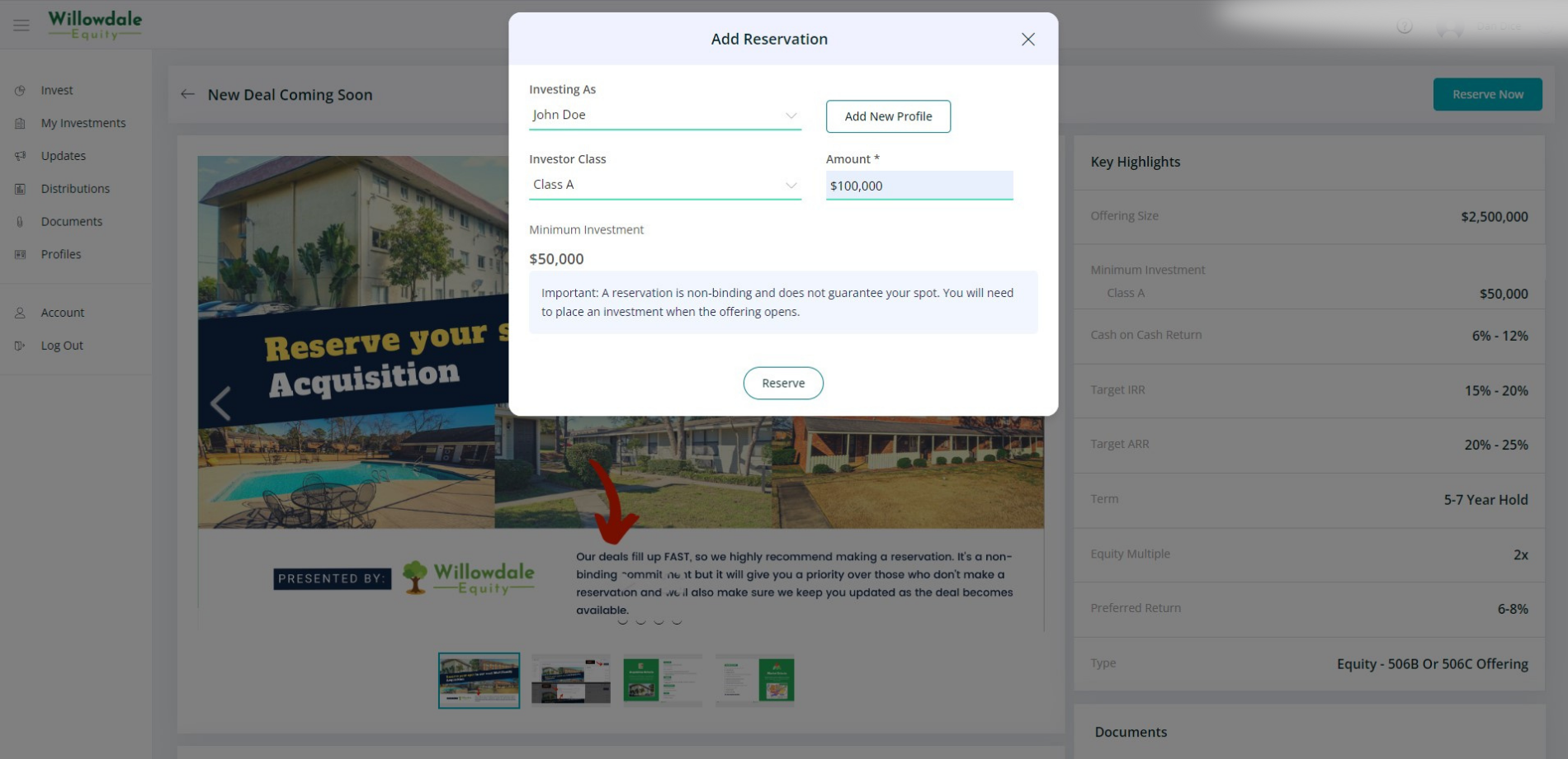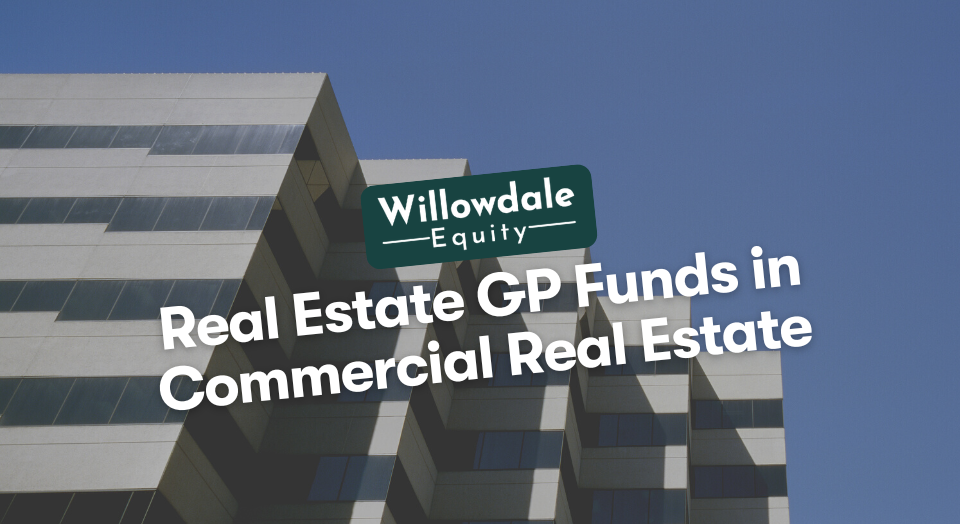
How to Prove You Are An Accredited Investor in 2024
This article is part of our passive investors guide on real estate syndications, available here.
Accredited investors comprise many entities, including individuals, banking giants, companies, and families saving up for retirement.
Achieving investor accreditation entails meeting specific criteria and guidelines. However, once someone is accredited, they get access to more significant and higher-risk investment opportunities, creating even more possibilities for growing their wealth.
This guide defines this investor profile and discusses the processes you must undertake when becoming one.
Key Takeaways
-
There are multiple ways you can try to verify and prove that you’re an accredited investor. One of the easiest ways is by using a third-party verification website.
-
A letter from your CPA are enough to prove your accreditation for most private real estate syndications and funds. The letter proves that you have the financial resources to become accredited.
Am I an Accredited Investor?
Accredited investors must meet specific requirements by the Securities and Exchange Commission (SEC). In addition, they must have a high net worth and significant financial knowledge.
To satisfy the status of an accredited investor by SEC definition, you’ll need to have $1 million as a net worth calculation, either individually or with your spouse. It does not include the value of your primary residence.
Or, you need to have an earned income of $200,000 individually or a joint income of $300,000 with your spouse over the last two years, with the expectation of making the same amount moving forward.
Once you meet either of the above criteria, you could be considered an accredited investor. First, however, you may need to prove that you are one. Let’s take a closer look at doing so.
Related Read: The Sophisticated Investor Requirments
Do you Have to Prove Your an Accredited Investor?
While you may not always have to prove you’re an accredited investor, there are situations in which you may need to prove your accredited status. This is often required by hedge funds and private equity funds, syndications, or private funds that want to verify your status. Verifying your investor status helps equity owners ensure that they’re making smart financial decisions regarding their investment.
For instance, if you want to make a significant investment, it’s not uncommon for a company to verify your accreditation status as an investor. You’ll need to provide tax returns, credit reports, and financial statements to a CPA or a 3rd-party verification company for proper verification.
The one exception to these federal securities laws is if you are investing in real estate under the SEC’s Rule 506 b of Regulation D. This rule allows up to 35 non-accredited investors to be involved in the project alongside an unlimited number of accredited investors.
Now, if you are an accredited investor and need to prove it, how do you do so? Let’s look at ways to prove that you are an accredited investor.
Verified Investor: How to Prove you are an Accredited Investor?

There are multiple ways you can try to verify and prove that you’re an accredited investor. One of the easiest ways is by using a third-party verification website.
Third-party verifications allow you to verify yourself or your investors through confidential and secure platforms. All you have to do with these sites is sign up on the website and submit the required documents.
In general, you’ll be asked to provide:
- Bank and brokerage statements
- Evidence of an IRA
- Credit report
- A letter from a CPA, lawyer, registered broker-dealer, or registered investment advisor
- Tax returns or W2 forms
These documents are used to show your net or joint net worth as well as your financial knowledge to become accredited.
Aside from third-party websites, you can also ask a CPA to write a letter verifying your accreditation. Let’s take a closer look at these types of letters and how they work.
CPA Accredited Investor Letter
Most third-party verification websites need you to submit a letter from a CPA. The letter proves that you have the financial resources to become accredited. Additionally, these letters can serve as verification of your accreditation themselves.
Also, these CPA letters are enough to prove your accreditation for most private real estate syndications and funds.
An accredited investor letter contains the following information:
- Date
- The name of the investor
- A confirmation that the investor is accredited, following The Securities Act of 1933, Regulation D, Rule 501
- Signature and printed name of the CPA
With this letter, you can begin making investments as a verified, accredited investor. But do you need to be accredited to invest passively in a real estate syndication? Let’s examine this situation in more detail.
Do you Have to be an Accredited Investor to Passively Invest in a Real Estate Syndication?
Several real estate syndications require you to be an accredited investor to invest in a private fund. But if your real estate sponsor raises capital through SEC’s Rule 506 B of Regulation D, accreditation status is not needed.
However, this would still depend on how much capital the real estate sponsor is trying to raise, which changes whether they choose to raise funds through Rule 506 B of Regulation D OR 506 C of Regulation D. In addition, some real estate syndications will sometimes call for you to be an accredited investor, even if it’s not required under Rule 506 B.
Another catch is that if the real estate sponsor chooses to raise capital for the project under Rule 506 B of Regulation D, they cannot legally solicit the specific deal offering nor the returns of the deal they are trying to raise capital for. Since this limits their ability to raise capital for the particular deal, some real estate sponsors might instead elect to raise capital through a 506 C offering.
This would allow the sponsor to solicit the specific investment offering but are limited to raising capital from verified accredited investors, unlike a 506 B offering. Even though they may be able to invest in real estate syndications passively, non-accredited investors may have difficulty finding those opportunities.
If you’re already an accredited investor, you may be able to get a free verification. Let’s look at where to go if you want a free verification.
Free Accredited Investor Verification
Several websites can do it for free if you want to verify yourself or your investors.
The following are helpful websites you can try:
- Stonks.com
- Accredited.am
While these aren’t the only websites that can verify your accreditation as an investor, they’re reliable ones to use. Other websites and verifying methods may result in costs, too.
Next, let’s look at how having a solo 401k investment can be involved in your accredited investor status.
Accredited Investor Net Worth 401k
Generally, if you have a Solo 401k and combined assets of $1 million or more, you and the Solo 401k can qualify as accredited investors.
If you choose to gain accredited status this way, you’ll need to use the tax ID number corresponding to your Solo 401k. And when you receive gains, dividends, and disbursements, make sure that they return to the bank account of your Solo 401k.
When you use this method to become an accredited investor, it can become easier for you to qualify for making more significant ticket investments.
If you still have some doubts about being an accredited investor, check out our FAQ section below.
Frequently Asked Questions About How to Check if Someone is an Accredited Investor
LLCs or Limited Liability Companies have recently been allowed to qualify as accredited investors. This is regardless of whether the individual owners qualify. In order to become an accredited investor, an LLC must have total assets exceeding $5 million and not be formulated with the primary purpose of acquiring shares from the offerings they intend to invest in.
The SEC’s Rule 506 allows self-certification of investors in order for them to become accredited. You can find sample templates of self-certification letters online to help you create your own self-certification letter.
A certified public accountant (CPA) can certify an investor is accredited by creating a letter that states the investor has met the necessary SEC guidelines, has enough resources, and has the right financial knowledge to be an accredited investor. The letter should contain the signature and printed name of the CPA.
How to Prove Accredited Investor - Conclusion
Becoming an accredited investor can be a great way to get involved in higher-value investments. Although you may not always be required to prove you’re an investor, getting the accreditation can be an essential gateway to new financial opportunities.
If you’re already an accredited investor and want to expand your knowledge and resources on private real estate investments, join the Willowdale Equity investor club. You’ll access exclusive value-add multifamily passive investment opportunities across the southeastern United States.
Sources:
- Solo 401K “Significant Changes to SEC Accredited Investor Definition”
- Investopedia “How to Become an Accredited Investor“
The Willowdale Equity Investment Club is a private group of investors that are looking to passively grow their capital and share in all the tax benefits through multifamily real estate investments.







